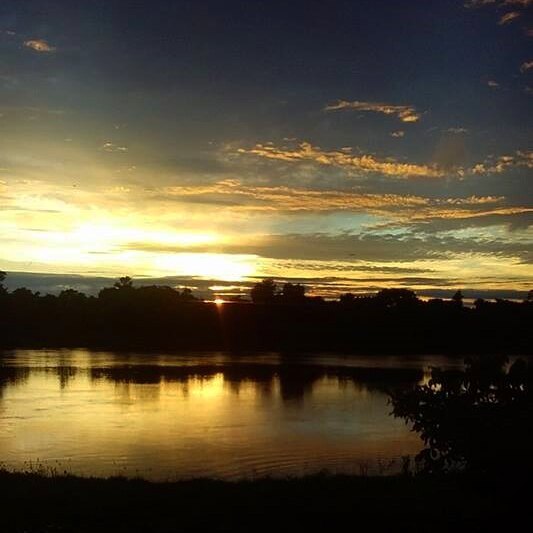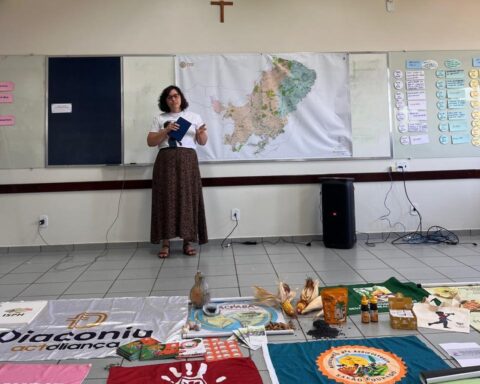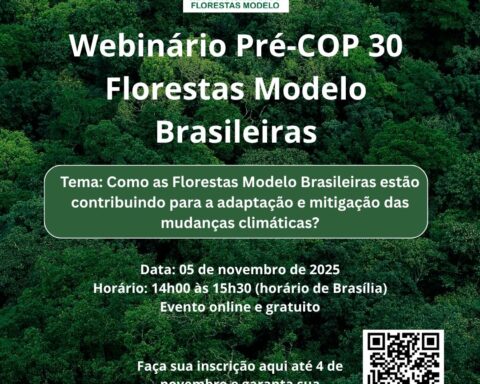Via Banco Interamericano de Desenvolvimento
Latin America and the Caribbean play a crucial role in the transition to nature-positive economies. But what does this mean? It involves promoting an economic model that not only minimizes negative environmental impacts but also actively contributes to the regeneration and conservation of ecosystems. This approach is based on the idea that economic activities can and should be designed to benefit both people and the environment, creating a virtuous cycle of sustainable development.
Nature is valuable to the economy. Globally, ecosystem services are valued at US$125 trillion annually, approximately 1.5 times more than the world’s gross domestic product (GDP). In the Americas, the annual value of ecosystem services provided by terrestrial ecosystems alone is at least US$24.3 trillion, equivalent to the continent’s GDP.
Social equity and environmental protection must be simultaneous priorities, as demonstrated by indigenous, Afro-descendant, and local communities. For years, scientists, environmental leaders, and social organizations have been researching, analyzing, and calling on citizens to protect nature. If we collaborate and set ambitious goals for the protection and conservation of ecosystems, we will likely see a recovery of ecosystems and species. However, if we do not act, we could face severe and irreversible consequences for all. This is why the Inter-American Development Bank Group has developed an Action Plan for Mainstreaming Natural Capital and Biodiversity to accelerate nature-positive projects that prioritize social and environmental well-being.
The Importance of the Climate/Nature Nexus:
Countries in the region are committed to addressing the biodiversity crisis, just as they are committed to the Paris Agreement. All Latin American and Caribbean countries have become signatories of the new Kunming-Montreal Global Biodiversity Framework under the Convention on Biological Diversity, which includes goals for 2030, such as halting and reversing nature loss and mobilizing at least US$30 billion annually. Also, countries are increasingly including nature-related targets and actions within their climate NDCs.
The convergence of nature and climate-related actions has also been noted in the international arena, where the Climate and Biodiversity COPs have increasingly connected agendas, as evidenced in the nature-related high-level segments of the Climate COPs in Glasgow and Dubai, and the joint effort of MDBs, at COP 26, to publish a Joint Statement on Nature, People, and Planet.
Recent research shows that the inter-twined climate and biodiversity crises can create a global decrease of 1.3% of GDP by 2100, with the brunt of the losses impacting the world’s poorest countries. The drivers of climate change and biodiversity loss are, in many cases, the same, and the impacts of both crises are frequently borne by the same populations.
Four Pillars to Unlock Nature-Positive Economies
The IDB Group is committed to positioning the region as a nature superpower, aiming to create a positive impact on biodiversity and improve the well-being of the population in Latin America and the Caribbean. Thus, its new Institutional Strategy considers biodiversity, natural capital, and climate action as priorities as well as cross-cutting issues that must be present in the agenda of various sectors and countries. The action plan responds to this institutional commitment with the goal of integrating natural capital and biodiversity in key areas where nature can support economic, social, and climate-smart development in the following ways:
- Country Dialogues, Strategies, and Programming: Through articulation and guidelines to member countries, we will ensure that biodiversity is integrated transversally into projects. A key element will be Sector Framework Documents and the support we provide to countries for the construction, review, and strengthening of their National Biodiversity Action Plans. Additionally, we aim to influence and provide the knowledge and strategies necessary for biodiversity to be included in national development plans, driving clear definitions in resource allocation and public policy design. Furthermore, climate change specialists and projects will always include biodiversity components.
- Operations and Accountability: Measurement and monitoring are fundamental for mainstreaming natural capital and biodiversity. We will develop projects aimed at generating co-benefits for nature, reversing the causes of biodiversity loss, and promoting the protection, restoration, and sustainable use of nature and its services for people. We will design methodologies to ensure natural wealth is present in numerous processes and remains integrated into operations where it can have an impact. Additionally, we are analyzing our portfolio regarding exposure to nature and biodiversity-related risks. Moreover, we will design methodologies to account for the achievements of projects in terms of nature-positive financing. We aim to reach a point where we can show our donors, client countries, and stakeholders the percentage of investments with a positive impact on nature.
- Knowledge Products and Capacity Development: There is a knowledge gap in biodiversity science in the region, and we will deploy all our capabilities and strategies for knowledge generation and dissemination. We will seek partnerships to conduct research that, among other things, helps build capacity for governments and agencies. One of our goals is to produce research documents on biodiversity and related publications. An example of this ongoing work is the IDB Group’s support for Brazil’s current G20 presidency, where the Bank is helping advance the Bioeconomy Initiative to foster international dialogue and action, resulting in a set of agreed high-level bioeconomy principles.
- Resource Mobilization and Nature Financing: Financial innovation for biodiversity is key, and we firmly believe in the possibility of designing a wide range of financial instruments to unlock markets. We commit to developing new financial products, such as debt-for-nature swaps, new natural capital asset classes, thematic bonds, blue bonds, and sustainability-linked loans, among others. In this pillar, we will support the development of natural capital markets, such as fair payments for ecosystem services, habitat banks, regenerative agriculture, and the bioeconomy, among others.
Towards the COP 16: Latin America and the Caribbean Leading the Way
The Biodiversity Action Plan reflects a commitment and a call to action for nature. Approximately 20% of jobs in the region are closely tied to ecosystem services, and a considerable portion of these jobs are held by vulnerable populations, including the 42 million indigenous peoples of Latin America and the Caribbean. We can transform biodiversity into green jobs, health, and new economic alternatives if we embark on the path of studying, conserving, and sustainably leveraging the region’s wealth.
For the first time in history, Colombia will host the 16th biennial Biodiversity Conference from October 21st to November 1st, and the IDB Group will be a key partner for countries in the region. It will continue its efforts to prioritize biodiversity to contribute to poverty reduction, promote equitable development, enhance food security, and mitigate environmental risks to improve lives in the region. The Latin America and the Caribbean region can be a global leader in providing solutions for the transition to nature-positive economic models.
With the Biodiversity COP in Cali this year and the Climate COP in Belém next year taking place consecutively, the region has a unique opportunity to actively demonstrate the impact and highlight the crucial connection between climate and nature, with the IDB as a strategic partner in these agendas.





